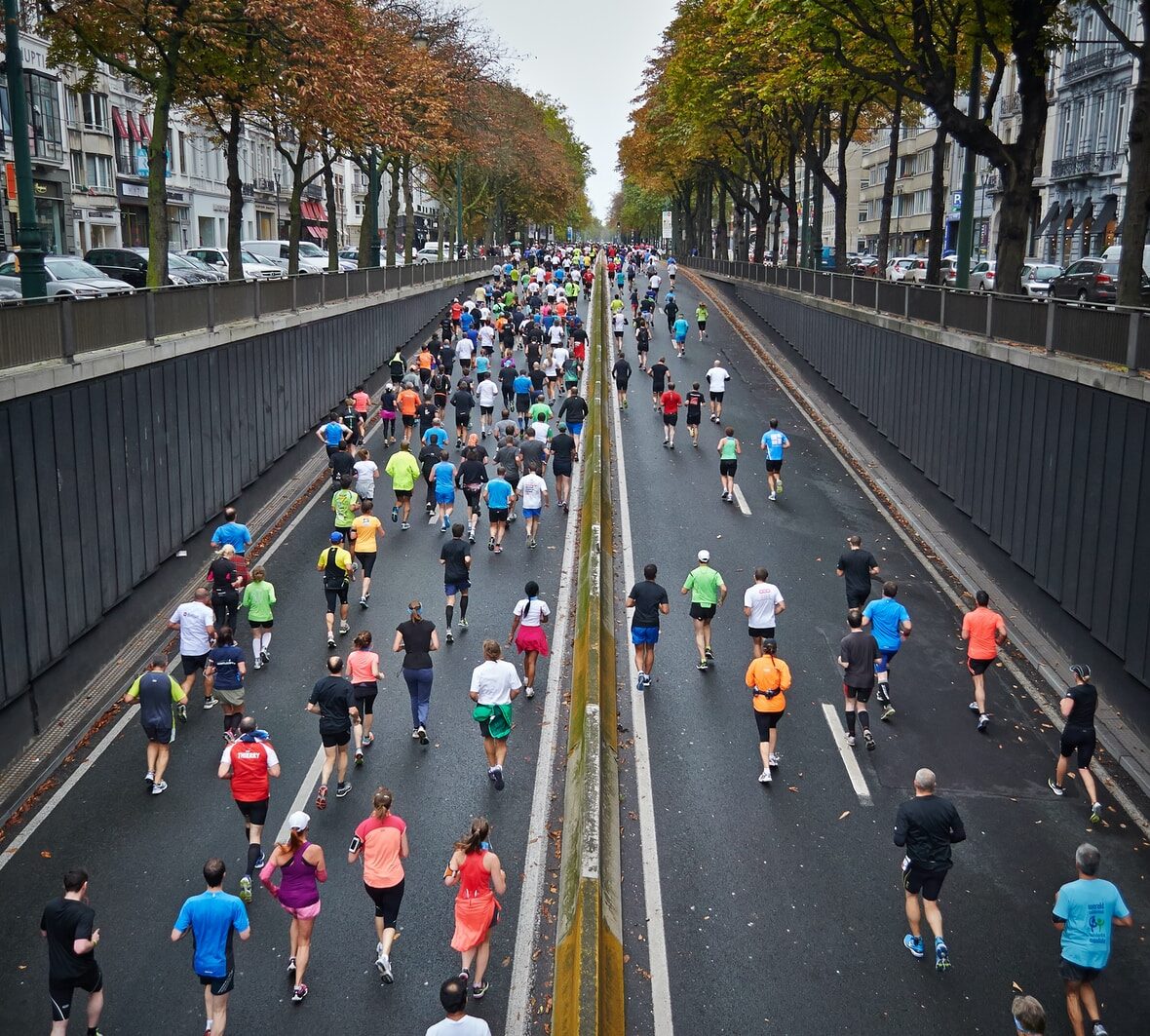
Are you wondering when the best time to lace up those sneakers and hit the pavement is? You’re not alone! Many people ponder this question, and the answer can vary widely depending on your lifestyle, preferences, and health goals. In this article, we’ll explore seven key insights that will help you determine the ideal time for your daily walks.
Imagine waking up to a crisp morning, the sun just peeking over the horizon, and feeling that rush of energy as you step outside. Or perhaps you prefer the tranquility of an evening stroll, allowing the day’s stress to melt away. Whichever you choose, knowing the benefits and drawbacks of walking at different times can transform your routine and enhance your overall well-being.
So, are you ready to discover the best time to walk for you? Let’s dive in!
Key Takeaways
- Morning walks boost energy and improve mood, making them ideal for starting your day right. 🌅
- Afternoon strolls can help regulate blood sugar levels and provide a productive break during busy days. ☀️
- Evening walks are perfect for unwinding and connecting with loved ones after a long day. 🌙
- Weather considerations play a crucial role in your walking experience, so always check conditions before heading out. 🌧️🌞
- Personal preferences matter! Experiment with different times to find what feels best for you. 🕒
- Safety first: Always choose well-lit areas and stay aware of your surroundings, regardless of when you walk. 🚦
- Consistency is key: The best time to walk is when you can make it a regular part of your routine!
Ready to gear up for your walks? 👉 Shop walking gear like Nike Running Shoes or Fitbit Fitness Trackers to enhance your walking experience!
Table of Contents
- Quick Tips and Facts
- Understanding the Best Time of Day to Walk
- Morning Walks: The Benefits of Starting Your Day Right
- Afternoon Adventures: Why Midday Walks Can Be a Game-Changer
- Evening Strolls: Unwinding After a Long Day
- Weather Considerations: How Conditions Affect Your Walking Time
- Personal Preferences: Finding Your Ideal Walking Time
- How to Create a Walking Routine That Works for You
- The Science Behind Walking: Health Benefits at Different Times
- Tips for Staying Motivated to Walk Regularly
- Safety First: Best Practices for Walking at Any Time
- Conclusion
- Recommended Links
- FAQ
- Reference Links
Quick Tips and Facts
- Best Time to Walk: The ideal time varies per individual; it’s when you can consistently fit it into your schedule! 🕒
- Morning Benefits: Walking in the morning can boost energy, improve mood, and help regulate sleep patterns. 🌅
- Afternoon Perks: A midday stroll can help balance blood sugar levels and enhance productivity. ☀️
- Evening Relaxation: Walking in the evening can help you unwind and prepare for a restful night. 🌙
- Weather Matters: Always consider the weather; it can impact your walking experience significantly. 🌧️🌞
- Consistency is Key: No matter the time, the most important factor is making walking a regular part of your routine! 🚶♂️
Understanding the Best Time of Day to Walk
When it comes to walking, timing is everything! But what does that mean for you? The best time of day to walk really depends on your lifestyle, preferences, and health goals. Whether you’re an early bird or a night owl, there’s a perfect time for you to lace up those sneakers!
The Science of Timing Your Walks
Research shows that circadian rhythms—our body’s internal clock—play a significant role in determining our energy levels throughout the day. According to Verywell Fit, your body temperature, hormone levels, and even muscle function can fluctuate based on the time of day. So, let’s break down the pros and cons of walking at different times!
Morning Walks: The Benefits of Starting Your Day Right 🌅
Why Morning Walks Rock
- Boosts Energy: A brisk morning walk can increase blood flow and wake up your nervous system, giving you that much-needed energy boost for the day ahead.
- Habit Formation: Morning walkers often find it easier to stick to their routines since there are fewer distractions.
- Cooler Temperatures: Enjoy the fresh air before the heat of the day kicks in!
Potential Drawbacks
- Safety Concerns: Walking before sunrise can pose safety risks, especially in poorly lit areas.
- Cold Muscles: Early morning walks may lead to stiffness, so be sure to warm up properly!
Afternoon Adventures: Why Midday Walks Can Be a Game-Changer ☀️
The Perks of Afternoon Strolls
- Blood Sugar Balance: A quick 10-minute walk after lunch can help regulate blood sugar levels, making it easier to avoid that post-lunch slump.
- Social Opportunities: Lunchtime walks can be a great way to connect with colleagues or friends.
Drawbacks to Consider
- Time Constraints: Busy schedules can make it challenging to fit in a walk during lunch breaks.
- Changing Clothes: The hassle of changing in and out of workout gear can be a deterrent for some.
Evening Strolls: Unwinding After a Long Day 🌙
Benefits of Evening Walks
- Stress Relief: Walking in the evening can help you decompress after a long day, signaling to your body that it’s time to wind down.
- Family Time: Evening walks can be a great way to bond with family or friends while getting some exercise.
Potential Drawbacks
- Safety Issues: Walking in the dark can be risky, especially in unfamiliar areas.
- Distractions: Evening plans or fatigue can interfere with your walking routine.
Weather Considerations: How Conditions Affect Your Walking Time 🌧️🌞
Weather’s Impact on Your Walk
- Heat and Humidity: If you live in a warmer climate, consider walking early in the morning or later in the evening to avoid the heat.
- Rainy Days: Don’t let a little rain stop you! Invest in a good rain jacket or find an indoor walking track.
Tips for Weather-Related Challenges
- Dress Appropriately: Layer up in cooler weather and wear breathable fabrics in the heat.
- Stay Hydrated: Always carry water, especially on hot days!
Personal Preferences: Finding Your Ideal Walking Time 🕒
Tailoring Your Walks to Fit Your Lifestyle
- Keep a Time Log: Track your daily activities for a week to identify when you have the most energy and free time.
- Experiment: Try walking at different times to see when you feel the best.
Real-Life Anecdote
One of our team members, Sarah, found that she was most productive during her afternoon walks. She often uses this time to brainstorm ideas for her next project, combining exercise with creativity!
How to Create a Walking Routine That Works for You 🏃♀️
Steps to Establish Your Routine
- Set Clear Goals: Determine how many days a week you want to walk and for how long.
- Choose Your Time: Based on your energy levels and schedule, pick a time that works best for you.
- Stay Flexible: Life happens! If you miss a walk, don’t beat yourself up—just get back on track the next day.
Tips for Success
- Find a Walking Buddy: Having a partner can keep you motivated and accountable!
- Mix It Up: Change your route or try different walking paths to keep things interesting.
The Science Behind Walking: Health Benefits at Different Times 🧠
Health Benefits of Walking
Walking is not just a great way to stay fit; it has numerous health benefits, including:
- Boosting Mood: Walking releases endorphins, which can improve your mood and reduce stress.
- Enhancing Cognitive Function: Regular walking can improve memory and cognitive abilities.
Timing Matters
According to One Peloton, the time of day you walk can influence these benefits. For instance, morning walks can help regulate your circadian rhythm, while evening walks can help you unwind.
Tips for Staying Motivated to Walk Regularly 🚶♂️
- Set Reminders: Use your phone or calendar to remind you of your walking times.
- Track Your Progress: Use apps or journals to log your walks and celebrate your achievements!
- Join a Community: Engage with local walking groups or online communities to share experiences and tips.
Safety First: Best Practices for Walking at Any Time 🚦
Essential Safety Tips
- Stay Visible: Wear bright or reflective clothing, especially during early morning or evening walks.
- Be Aware of Your Surroundings: Keep your head up and stay alert to your environment.
Walking Alone vs. Walking with Others
- Walking Alone: Choose safe, well-lit areas and let someone know your route.
- Walking with Friends: This can enhance safety and make the experience more enjoyable!
With all these insights, we hope you feel empowered to find the best time of day to walk that suits your lifestyle! Remember, the key is consistency and making walking a regular part of your routine.
Stay tuned for our next sections, where we’ll dive deeper into the benefits of walking and answer some frequently asked questions! 🏃♀️✨
Conclusion

In conclusion, the best time of day to walk is highly individual and depends on your personal preferences, lifestyle, and health goals. Whether you prefer the refreshing start of a morning walk, the energizing boost of an afternoon stroll, or the calming effect of an evening saunter, the key is to find a time that fits seamlessly into your routine.
Summary of Positives and Negatives
-
Positives:
- Morning walks can enhance energy levels and improve mood for the day ahead. 🌅
- Afternoon walks help balance blood sugar levels and provide a mental break during busy days. ☀️
- Evening walks can reduce stress and promote relaxation before bedtime. 🌙
-
Negatives:
- Morning walks may pose safety risks if done in the dark and can lead to stiffness if muscles are cold. ❌
- Afternoon walks can be challenging due to time constraints and changing clothes. ❌
- Evening walks may be affected by safety concerns in poorly lit areas and distractions from evening plans. ❌
Overall, we confidently recommend making walking a consistent part of your daily routine, regardless of the time you choose. The benefits are numerous, and the most important thing is to stay active!
Recommended Links
-
👉 Shop Walking Gear:
- Nike Running Shoes: Amazon | Nike Official Website
- Adidas Ultraboost: Amazon | Adidas Official Website
- Fitbit Fitness Tracker: Amazon | Fitbit Official Website
-
Books on Walking and Wellness:
FAQ

What are the benefits of walking in the morning versus the evening for overall health and wellness?
Morning Benefits
- Energy Boost: Morning walks can increase alertness and energy levels throughout the day. Exposure to natural light helps regulate your circadian rhythm, which can improve sleep quality at night.
- Habit Formation: Morning walkers often find it easier to stick to their routines as there are fewer distractions.
Evening Benefits
- Stress Relief: Evening walks can help you unwind after a long day, reducing stress and anxiety levels.
- Social Opportunities: Evening walks can be a great way to connect with family or friends, making exercise more enjoyable.
How can I stay safe while walking alone, regardless of the time of day I choose to go for a walk?
Safety Tips
- Choose Well-Lit Areas: Stick to well-lit, populated areas, especially if walking in the early morning or evening.
- Stay Aware: Keep your head up and be aware of your surroundings. Avoid distractions like headphones if walking alone.
- Inform Someone: Let a friend or family member know your route and expected return time.
What are some tips for staying hydrated and energized during a walk, especially during extreme temperatures?
Hydration Tips
- Drink Water: Always carry a water bottle, especially on hot days. Aim to drink water before, during, and after your walk.
- Electrolytes: In extreme heat, consider drinks with electrolytes to replenish lost minerals.
- Timing: Walk during cooler parts of the day to avoid overheating, and wear breathable clothing.
Can walking at the same time every day help establish a consistent routine and improve mental health benefits associated with regular physical activity?
Routine Benefits
- Consistency: Walking at the same time each day can help establish a habit, making it easier to stick to your routine.
- Mental Health: Regular physical activity, including walking, is linked to improved mood and reduced anxiety. Establishing a routine can enhance these mental health benefits.
Reference Links
- Verywell Fit – The Best Time of Day to Walk and Exercise
- One Peloton – Best Time to Walk
- My Walking Coach – The Best Time of the Day to Walk
By understanding your own preferences and needs, you can find the perfect time to walk and enjoy all the incredible benefits it has to offer! Happy walking! 🚶♀️✨
